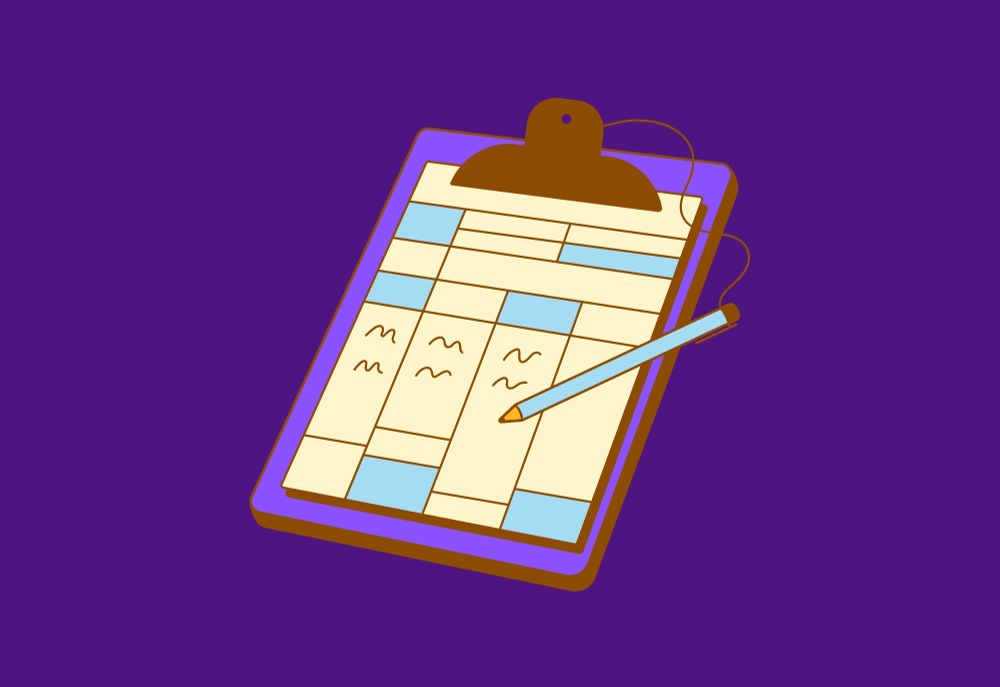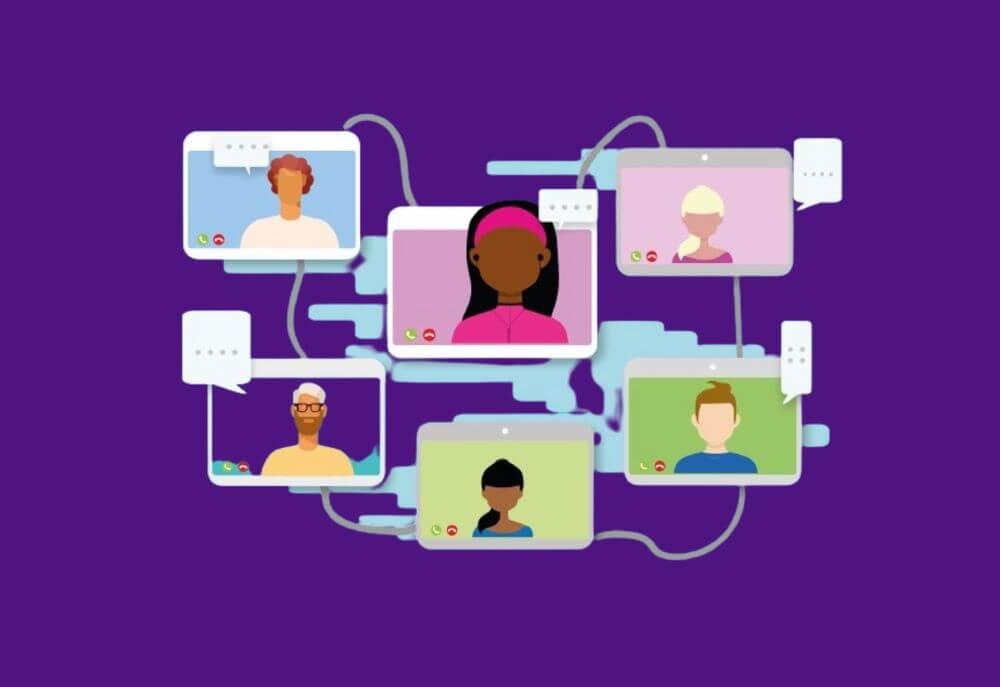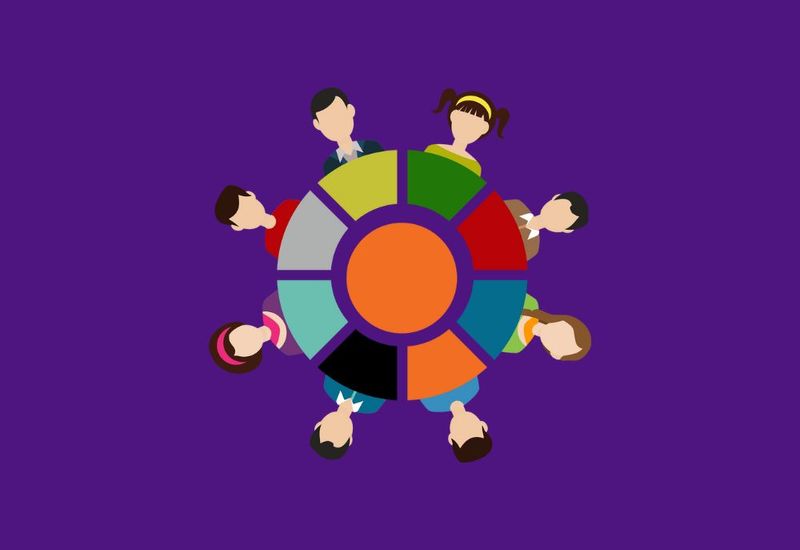Meetings are important for effective team collaboration. However, we’ve all experienced meetings that proved to be unproductive. Some of them often involve unprepared participants, off-topic discussions, and hours passing without reaching any decisions.
While certain meetings, such as status updates or daily standups, may be unnecessary, others are essential. In cases where team meetings are required, having a well-crafted meeting agenda becomes crucial. It’ll help meeting participants set clear expectations of what needs to happen before, during, and after the meeting.
What is a Meeting Agenda?
A meeting agenda is a document or outline that serves as a guide for conducting a productive and organized meeting. It outlines the topics, issues, and objectives that will be discussed during the meeting and helps keep the meeting on track and focused.
There are a lot of benefits of an effective meeting agenda. By following a well-structured team meeting agenda, you can enhance the efficiency and effectiveness of your meetings. You can also ensure that important topics are covered and keep participants engaged and informed. It also helps manage time and prevents meetings from becoming unproductive or disorganized.
How to Create an Effective Meeting Agenda?
Crafting a meeting agenda might be more challenging than it seems. A superficially assembled, vague, or disorganized agenda created just before the meeting may not provide much benefit.
With Cultup, crafting the perfect agenda is just a click away. Simply hit the button, and Cultup tailors an agenda suited for the occasion. If you aren’t on Cultup yet, feel free to draw inspiration from the templates below.
Consider the following suggestions for preparing a productive agenda for your upcoming team meeting:
Define the meeting’s purpose:
- Start by clearly defining the main purpose of the meeting. What do you want to accomplish during this gathering?
Identify key topics:
- List the specific topics or discussion points that need to be addressed. Keep the list focused on what’s essential to achieve the meeting’s purpose.
Prioritize agenda items:
- Organize the agenda items in a logical order. Place the most critical topics at the beginning when participants are most alert and engaged.
Set time allocations:
- Assign a realistic amount of time to each agenda item. This helps prevent topics from dragging on. It also ensures that all important matters are covered within the allotted time.
Invite relevant participants:
- Ensure that the right people are invited to the meeting. Only include individuals who are directly involved or have valuable contributions to make regarding the agenda items.
Share materials in advance:
- Distribute any documents, reports, or materials related to the agenda items well in advance. This allows participants to prepare and come to the meeting informed.
Include open discussion time:
- Reserve a portion of the agenda for open discussions, questions, and concerns that may arise during the meeting.
Allocate time for action items:
- At the end of the meeting, allocate time to discuss and assign action items. Clearly define who is responsible for each task and set deadlines.
Be realistic:
- Keep the agenda realistic and avoid overloading it with too many items. It’s better to cover a few topics thoroughly than to rush through many.
Review and adjust:
- Periodically review and adjust your meeting agendas based on feedback and the effectiveness of previous meetings. Make improvements as needed.
Stick to the agenda:
- During the meeting, the meeting organizer should ensure that the discussion stays on track and within the time limits set in the agenda.
Follow up:
- After the meeting, distribute meeting minutes or a summary of what was discussed, including action items and deadlines. This reinforces accountability and keeps everyone informed.
By following these key steps, you can create a well-structured and productive meeting agenda that helps you achieve your meeting’s goals efficiently and effectively.
Meeting Agenda Examples
There are various types of meeting agendas, each tailored to the specific purpose and goals of the meeting. Here are a few meeting agenda examples for different types of meetings:
1. Team Status Meeting Agenda:
Date and Time: [Date] at [Time]
Location: [Location or Virtual Platform]
Meeting Objectives:
– Review the entire team’s progress and achievements.
– Discuss upcoming projects and challenges.
– Assign action items.
Agenda Items:
– Welcome and roll call (5 minutes)
– Review of previous meeting minutes (10 minutes)
– Team progress updates (15 minutes)
– Discussion of upcoming projects (20 minutes)
– Challenges and problem-solving (15 minutes)
– Action item assignments (10 minutes)
– Open floor for questions and concerns (10 minutes)
Next Steps and Follow-up:
– Summarize key points and assign action items.
– Schedule the next meeting.
2. Project Kickoff Meeting Agenda:
Date and Time: [Date] at [Time]
Location: [Location or Virtual Platform]
Meeting Objectives:
– Introduce the project and team members.
– Define project goals, scope, and deliverables.
– Establish roles and responsibilities.
Agenda Items:
– Welcome and introduction of team members (10 minutes)
– Project overview and goals (15 minutes)
– Scope and deliverables (20 minutes)
– Roles and responsibilities (15 minutes)
– Project timeline and milestones (20 minutes)
– Communication plan (10 minutes)
– Questions and clarifications (10 minutes)
Next Steps and Follow-up:
– Recap key project details.
– Distribute project-related documents.
– Schedule follow-up meetings.
3. Board Meeting Agenda:
Date and Time: [Date] at [Time]
Location: [Location or Virtual Platform]
Meeting Objectives:
– Review organizational performance.
– Make strategic decisions.
– Address key issues and priorities.
Agenda Items:
– Call to order and roll call (10 minutes)
– Approval of previous meeting minutes (15 minutes)
– CEO’s report and financial update (30 minutes)
– Strategic initiatives and decisions (40 minutes)
– Committee reports (20 minutes)
– New business and action items (15 minutes)
– Public comments or questions (10 minutes)
Next Steps and Follow-up:
– Summarize key decisions and action items.
– Set the date for the next board meeting.
Staff Meeting Agenda
- Date: [Date]
- Time: [Start Time] – [End Time]
- Location: [Location or Virtual Platform]
Meeting Objectives:
- Share important updates with the team.
- Address any concerns or questions from staff members.
- Foster communication and collaboration within the team.
Agenda Items:
1. Welcome and Opening Remarks (5 minutes)
Meeting facilitator welcomes everyone and sets the tone for the meeting.
2. Approval of Previous Meeting Minutes (5 minutes)
Review and approval of minutes from the last staff meeting.
3. Team Member Updates (15 minutes)
Each team member provides a brief update on their current projects, achievements, and challenges.
4. Departmental Updates (20 minutes)
Department heads or managers present updates, achievements, and any upcoming departmental goals or initiatives.
5. Announcements and Company News (10 minutes)
Sharing important announcements, company news, or upcoming events.
6. Discussion of Key Issues (15 minutes)
Open discussion of any pressing issues or concerns raised by team members.
7. Training or Professional Development Opportunities (10 minutes)
Sharing important information about training, workshops, or professional development opportunities.
8. Project Updates (15 minutes)
Updates on ongoing projects, deadlines, and any adjustments needed.
9. Recognition and Appreciation (10 minutes)
Recognizing outstanding contributions and achievements by team members.
10. Upcoming Goals and Objectives (10 minutes)
Discussing team or departmental goals for the upcoming week or month.
11. Open Floor for Questions and Comments (10 minutes)
Allowing team members to ask questions, provide feedback, or share their thoughts.
Next Steps and Follow-up:
- Summarize key takeaways from the meeting.
- Assign action items and responsibilities.
- Set the date for the next staff meeting.
Project Retrospective Meeting Agenda
Meeting Date: [Date] Meeting Time: [Start Time] – [End Time] Meeting Location: [Location or Virtual Platform]
Meeting Objectives:
- Reflect on the recently completed project.
- Identify successes and areas for improvement.
- Extract valuable lessons for future projects.
Agenda Items:
1. Welcome and Introduction (5 minutes)
The facilitator welcomes the team and outlines the purpose of the retrospective.
2. Project Recap (10 minutes)
Review the original project goals, scope, and success criteria.
3. Positive Aspects (20 minutes)
Team members share achievements, successful strategies, and what went well during the new project.
4. Areas for Improvement (20 minutes)
Discuss challenges, issues, or aspects that could have been handled more effectively. Focus on constructive feedback.
5. Key Lessons (15 minutes)
Identify specific lessons learned during the project that can be applied to future endeavors.
6. Action Items (15 minutes)
– Determine action items based on discussions:
– What changes or improvements should be made in the next project?
– Assign responsibilities and set deadlines for these action items.
7. Recognition and Appreciation (10 minutes)
Express appreciation for team members’ contributions and successes during the project.
8. Closure and Next Steps (5 minutes)
– Summarize the main takeaways from the retrospective.
– Communicate next steps, including how lessons learned will be incorporated into future projects.
Next Steps and Follow-up:
- Document the meeting outcomes, including action items and lessons learned.
- Share the retrospective report with the team.
- Integrate the lessons learned into future project planning and execution.
Optional:
- Depending on team dynamics and preferences, you may add sections like “Celebrate Successes” or “Team Building Activities” to the agenda.
These are just a few examples, and meeting agendas can vary widely depending on the specific purpose and format of the meeting. The key is to ensure that the agenda items are relevant, the time allocations are realistic, and the meeting objectives are clear.
Free Meeting Agenda Templates
Here are a few meeting agenda templates for various types of meetings:
Standard Meeting Agenda Template:
**Meeting Agenda**
**Date:** [Date]
**Time:** [Start Time] – [End Time]
**Location:** [Location or Virtual Platform]
**Meeting Objectives:**
– [Objective 1]
– [Objective 2]
– [Objective 3]
**Agenda Items:**
1. **Welcome and Opening Remarks (5 minutes)**
– Introduction of attendees.
– Overview of the meeting’s purpose.
2. **Approval of Previous Meeting Minutes (10 minutes)**
– Review and approval of minutes from the last meeting.
3. **Agenda Item 1 (15 minutes)**
– Discussion, presentation, or updates related to the first agenda item.
4. **Agenda Item 2 (15 minutes)**
– Discussion, presentation, or updates related to the second agenda item.
5. **Agenda Item 3 (15 minutes)**
– Discussion, presentation, or updates related to the third agenda item.
6. **Action Items (10 minutes)**
– Assign tasks, responsibilities, and deadlines.
7. **Open Floor for Questions and Comments (10 minutes)**
– Allow participants to ask questions or provide input.
**Next Steps and Follow-up:**
– Summarize key points and action items.
– Set the date for the next meeting.
Project Status Meeting Agenda Template:
**Project Status Meeting Agenda**
**Date:** [Date]
**Time:** [Start Time] – [End Time]
**Location:** [Location or Virtual Platform]
**Meeting Objectives:**
– Review project progress.
– Discuss challenges and solutions.
– Allocate tasks and responsibilities.
**Agenda Items:**
1. **Welcome and Project Overview (5 minutes)**
– Brief project status summary.
2. **Achievements and Milestones (15 minutes)**
– Presentation of accomplishments and project milestones.
3. **Challenges and Roadblocks (15 minutes)**
– Discussion of issues and potential solutions.
4. **Task Assignments (10 minutes)**
– Allocation of tasks and responsibilities.
5. **Upcoming Deadlines (10 minutes)**
– Overview of upcoming project deadlines.
6. **Action Items and Follow-up (10 minutes)**
– Assign action items and set deadlines.
7. **Open Floor for Questions (10 minutes)**
– Address any questions or concerns.
**Next Steps and Follow-up:**
– Summarize key takeaways and action items.
– Schedule the next project status meeting.
Team Building Meeting Agenda Template:
**Team Building Meeting Agenda**
**Date:** [Date]
**Time:** [Start Time] – [End Time]
**Location:** [Location or Virtual Platform]
**Meeting Objectives:**
– Strengthen team cohesion.
– Foster collaboration and communication.
– Build team morale.
**Agenda Items:**
1. **Welcome and Icebreaker (10 minutes)**
– Engaging icebreaker activity.
2. **Team Building Activity (30 minutes)**
– Team-building exercise or activity.
3. **Discussion and Reflection (20 minutes)**
– Reflect on the team-building activity.
– Discuss key takeaways and insights.
4. **Team Goals and Aspirations (15 minutes)**
– Discuss team goals and aspirations.
5. **Recognition and Appreciation (10 minutes)**
– Acknowledge team members’ contributions.
6. **Open Floor for Ideas (10 minutes)**
– Allow team members to share ideas for future team-building activities.
**Next Steps and Follow-up:**
– Summarize key insights and ideas.
– Plan the next team-building activity.
Marketing Meeting Agenda Template
**Marketing Meeting Agenda**
**Date:** [Date]
**Time:** [Start Time] – [End Time]
**Location:** [Location or Virtual Platform]
**Meeting Objectives:**
– Review marketing strategies and campaigns.
– Discuss performance metrics and results.
– Align marketing efforts with organizational goals.
**Agenda Items:**
1. **Welcome and Introduction (5 minutes)**
– Introduction of attendees.
– Overview of the meeting’s purpose.
2. **Review of Previous Meeting Minutes (10 minutes)**
– Review and approval of minutes from the last marketing meeting.
3. **Marketing Campaign Updates (20 minutes)**
– Presentation and discussion of ongoing marketing campaigns.
– Results, challenges, and optimizations.
4. **Content Strategy (15 minutes)**
– Updates on content creation, publication schedule, and specific meeting topics.
– Discuss content performance and audience engagement.
5. **Digital Marketing (15 minutes)**
– Review of digital advertising efforts, including paid search, social media, and email marketing.
– Analyze key performance metrics.
6. **Market Research and Competitor Analysis (15 minutes)**
– Presentation of market research findings and competitor analysis.
– Insights for marketing strategy adjustments.
7. **Budget and Resource Allocation (10 minutes)**
– Discuss marketing budget allocation and resource needs.
– Alignment with organizational goals.
8. **Upcoming Marketing Initiatives (10 minutes)**
– Preview of upcoming marketing campaigns and initiatives.
– Timeline, goals, and responsibilities.
9. **Action Items and Follow-up (10 minutes)**
– Assign action items, responsibilities, and deadlines.
10. **Open Floor for Questions and Comments (10 minutes)**
– Allow participants to ask questions, provide feedback, or share ideas.
**Next Steps and Follow-up:**
– Summarize key points and action items.
– Set the date for the next marketing meeting.
These templates can be customized to suit your meeting’s objectives and requirements. Simply replace the placeholders with your regular meeting details and agenda items.



